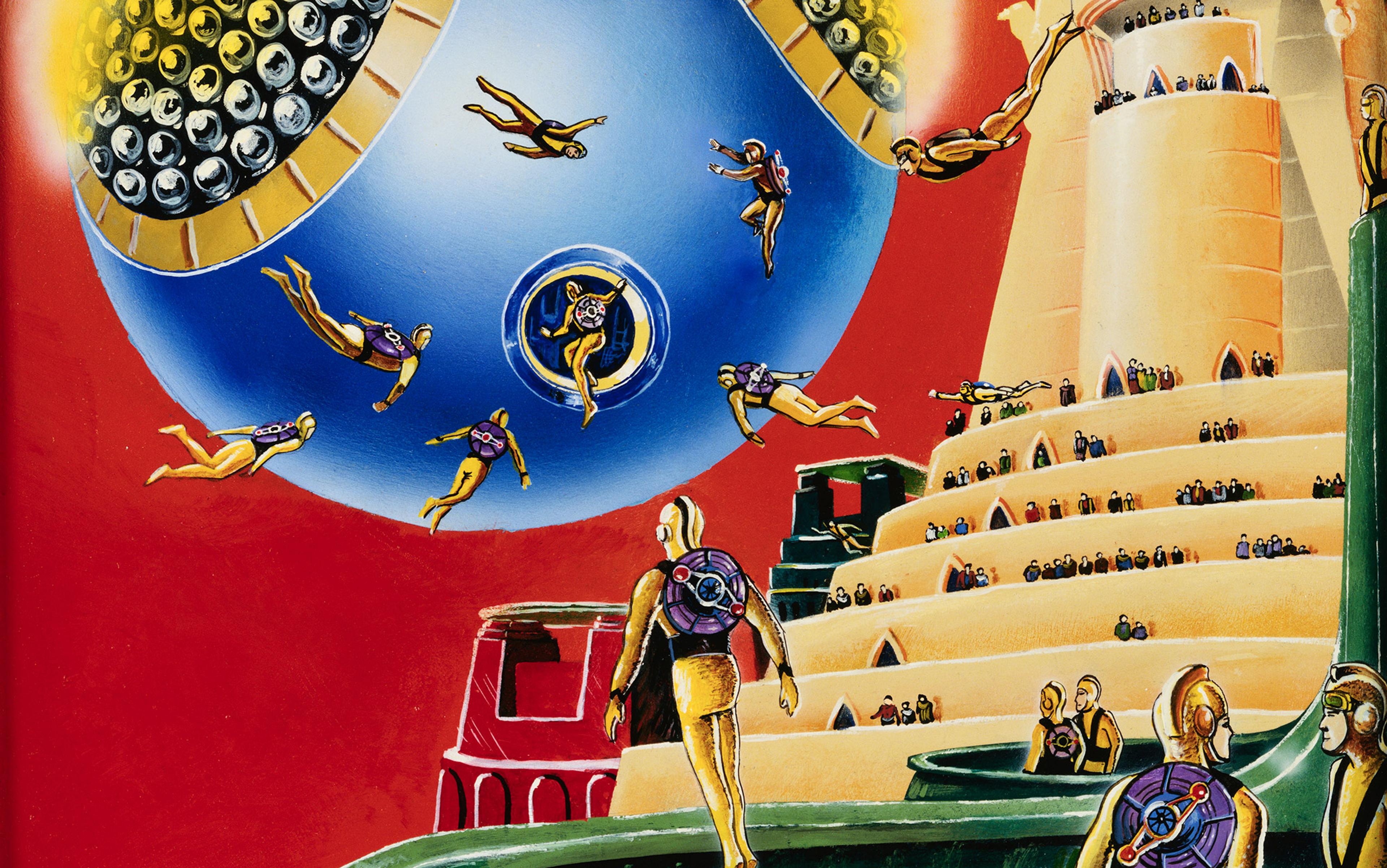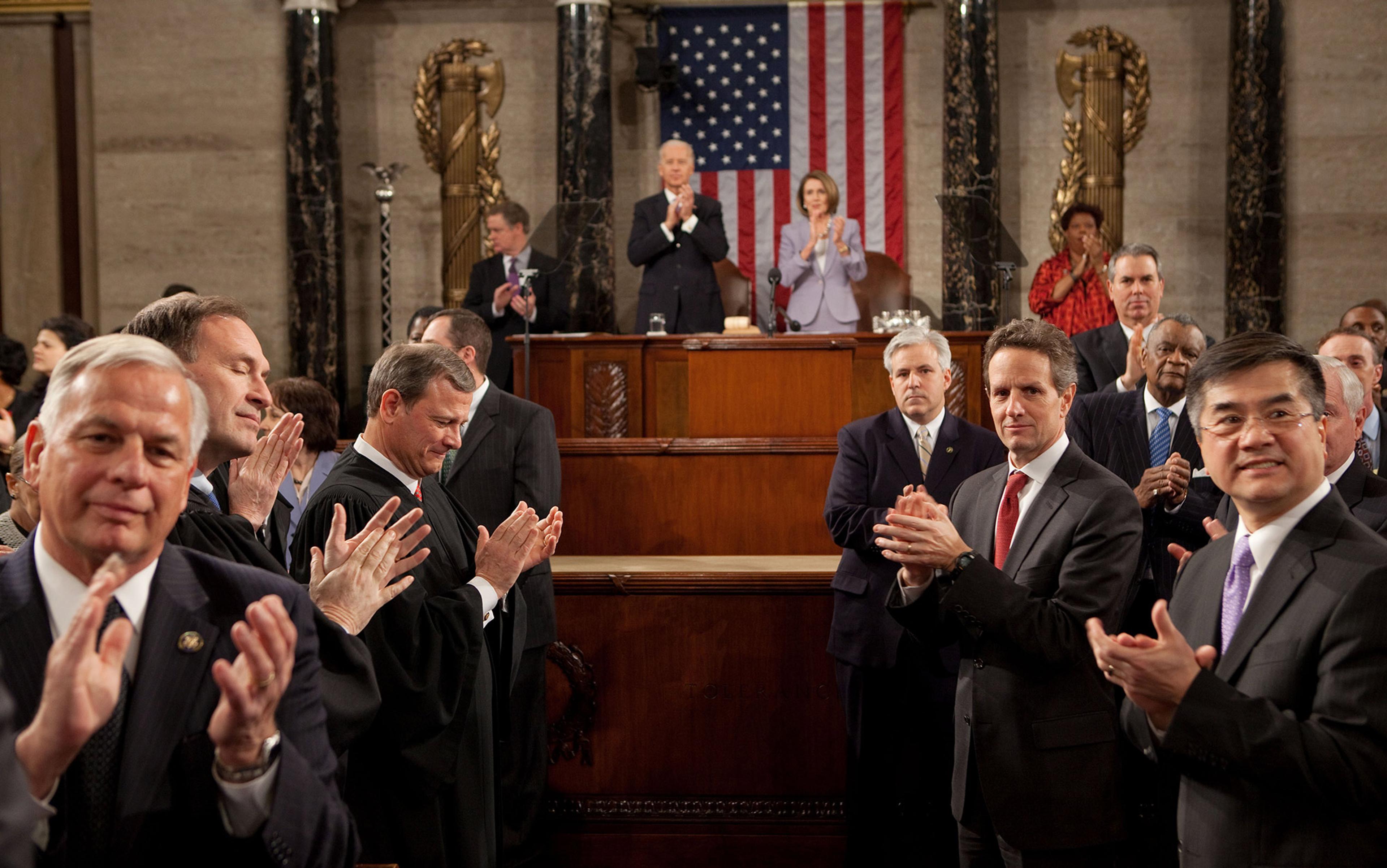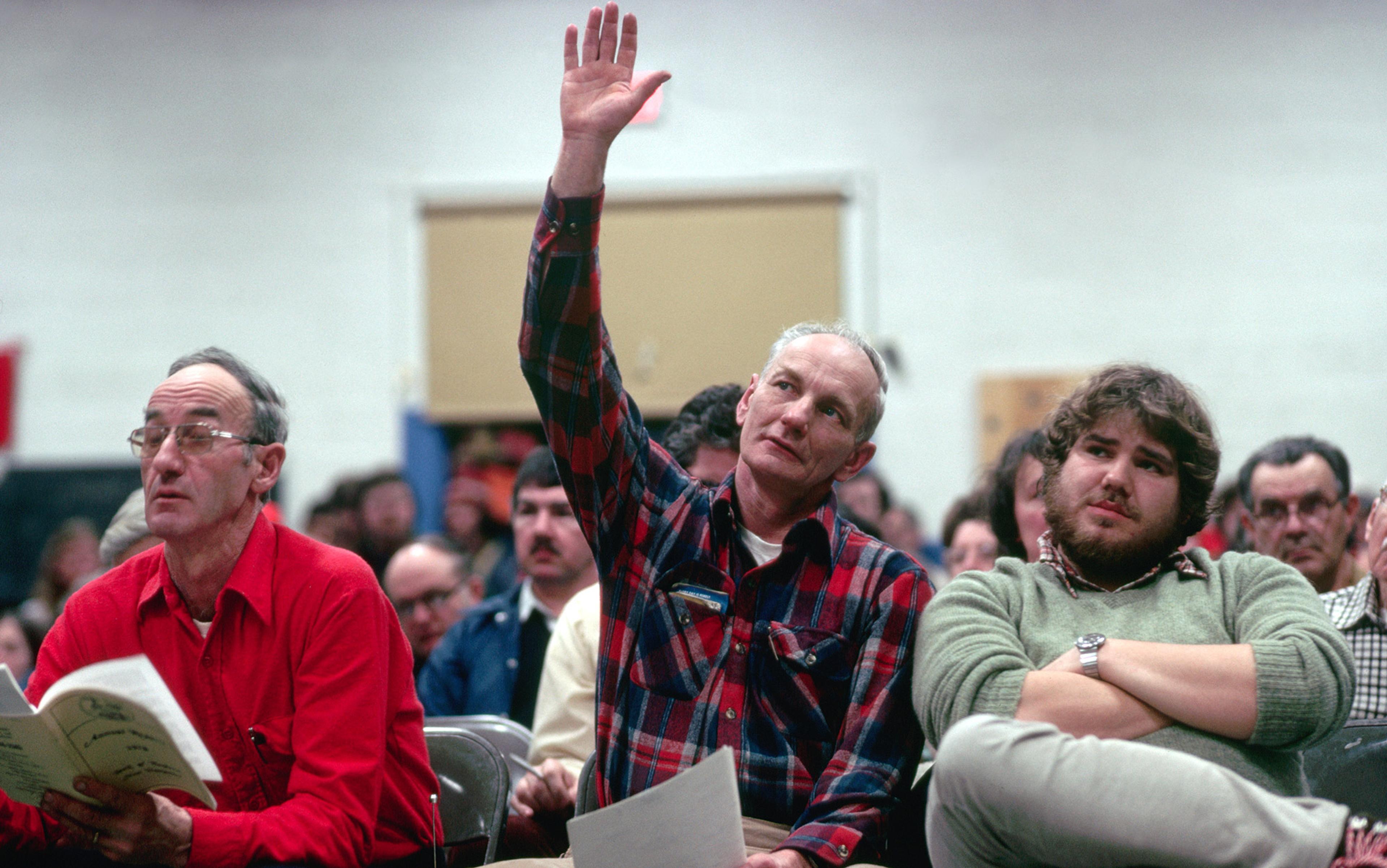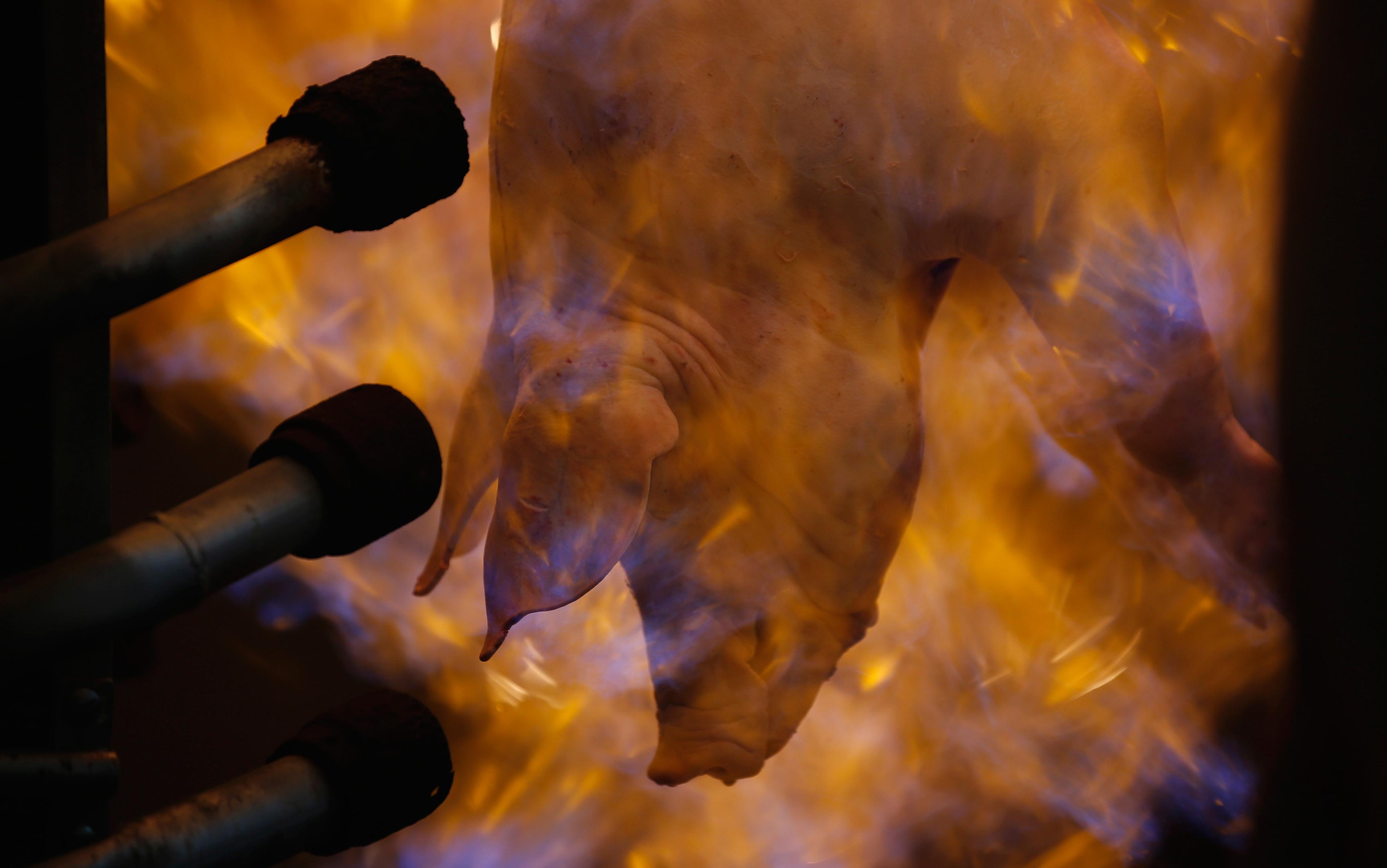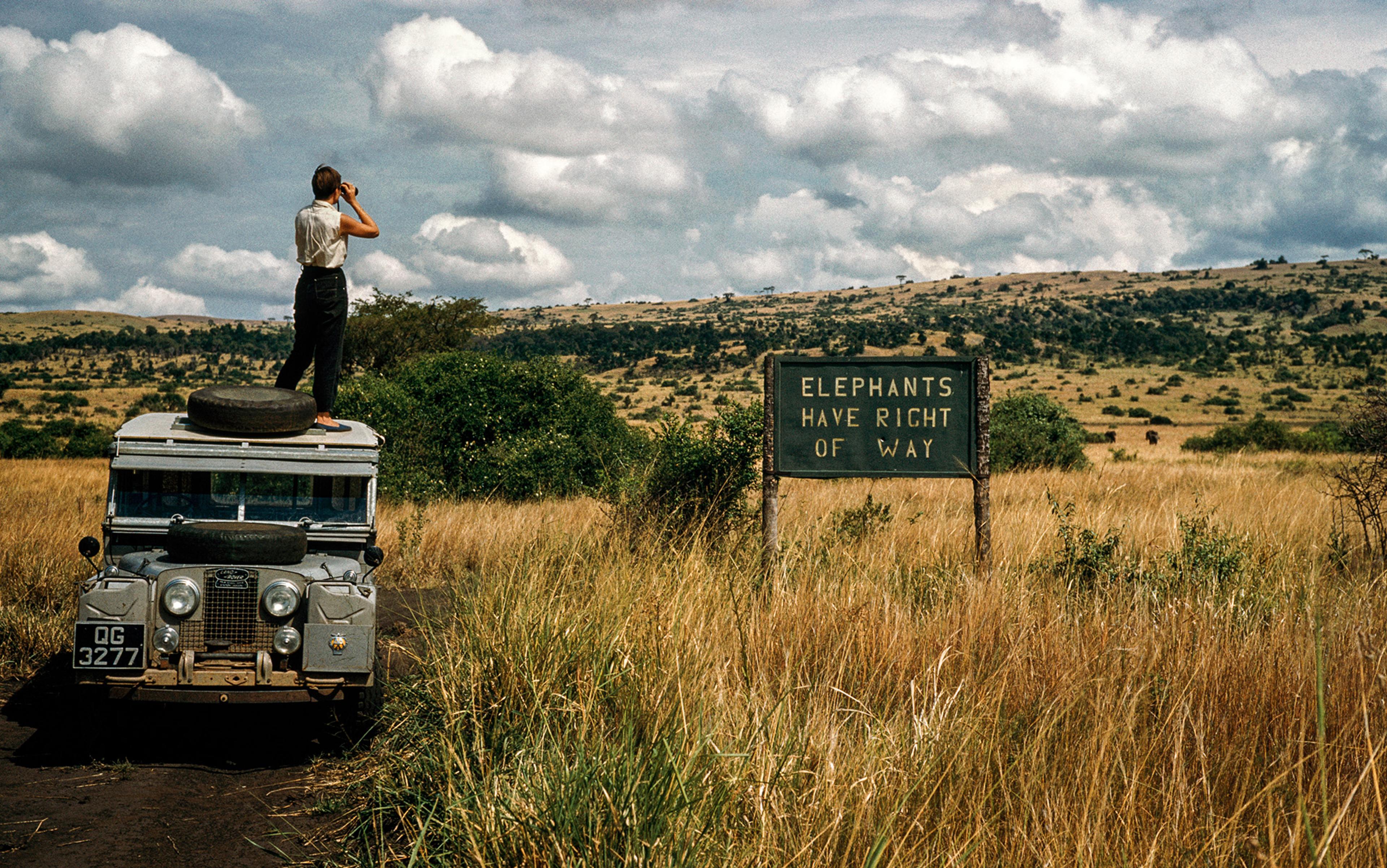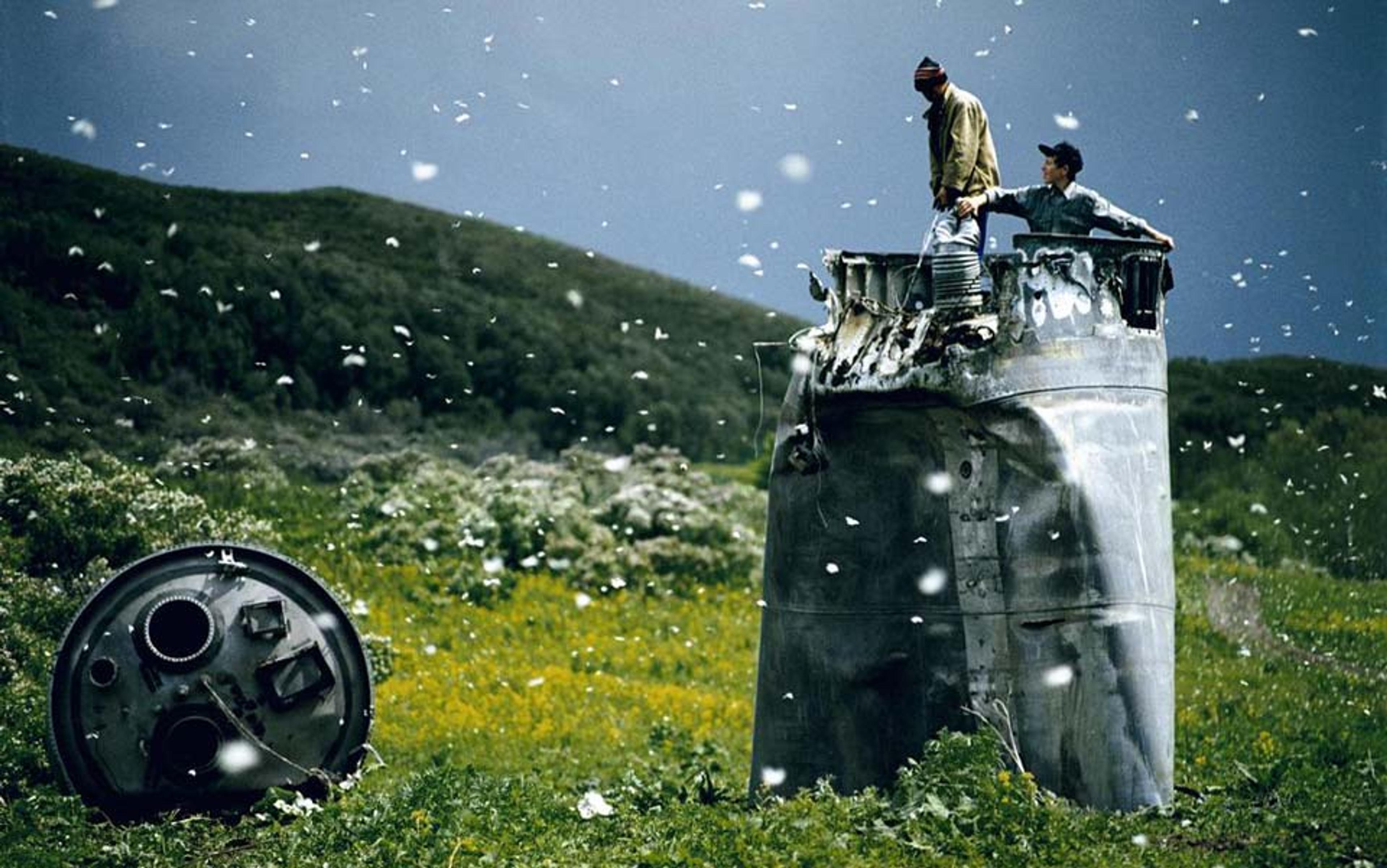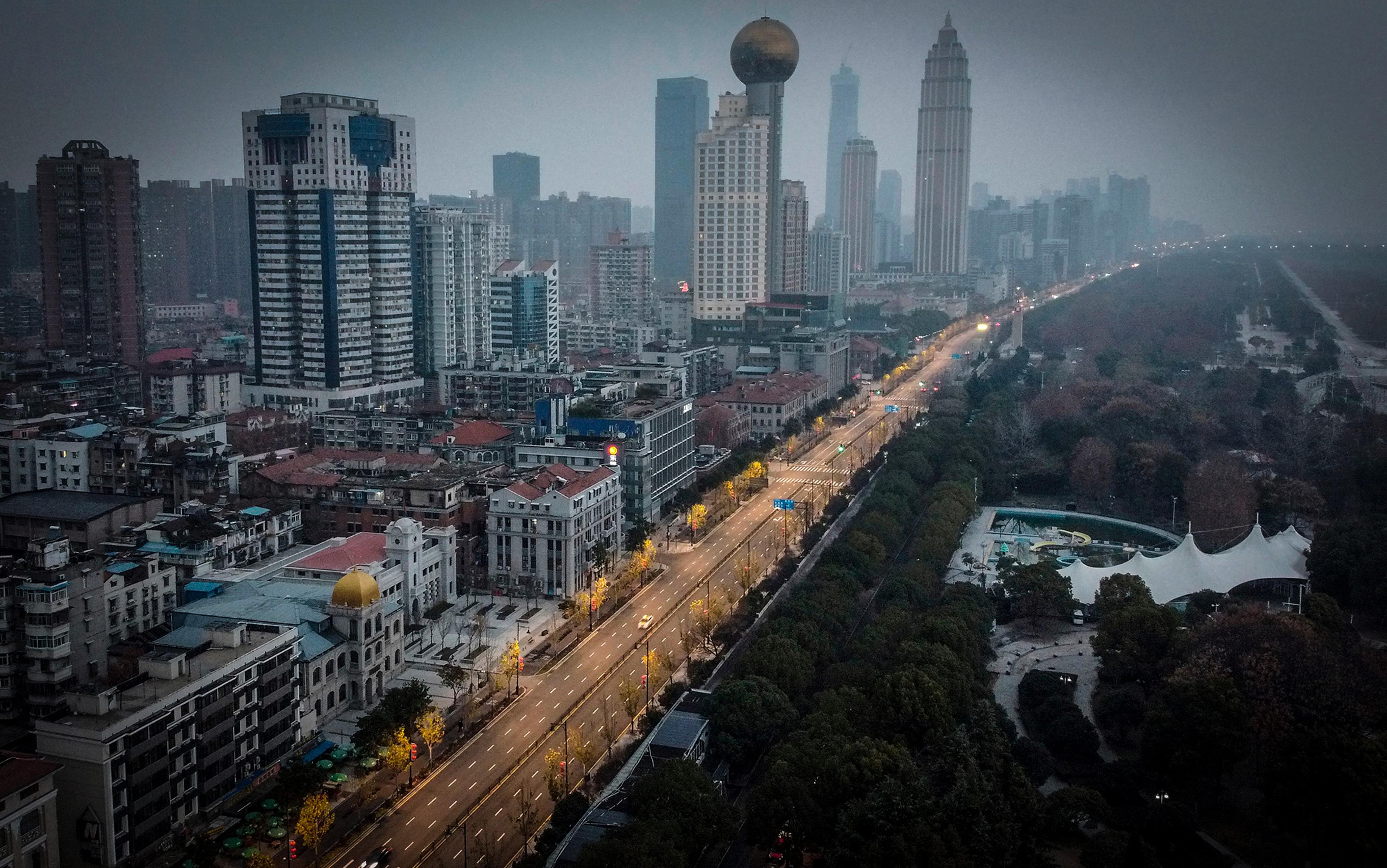Given the ferocity with which he opposed it, the Irish philosopher and statesman Edmund Burke is not often accused of radicalism. Yet here he is, writing in Reflections on the Revolution in France (1790):
Society is indeed a contract… a partnership not only between those who are living, but between those who are living, those who are dead, and those who are to be born.
Though it might not look it, this is a profoundly radical thought. We already have a device with which to represent the wishes of past generations. Constitutions, the voices of our history, do not chain us to the past, for they can always be outvoted, but they do have a powerful influence on what our societies do now. We lack any such mechanism for considering the interests of future generations. And this is a trickier problem than might at first be obvious. Indeed, the very structure of reality seems to conspire against us.
While we might feel a sense of solidarity with past and future generations alike, time’s arrow means that we must relate to each other as members of a relay race team. This means that citizens downstream from us in time are doubly disadvantaged compared with the upstream generations. Our predecessors have imposed – unilaterally – the consequences of their political negotiations upon us: their economic regime, immigration policies, the national borders that they drew up. But they were also able to explain themselves to us, giving us not only the bare outcome of the US Constitution, for example, but also the records of the debates about the principles behind it, such as the Federalist Papers (1787-88). Such commentaries are a substantial source of our respect for our ancestors’ achievements, beyond their status as a fait accompli.
By contrast, future generations must accept whatever we choose to bequeath them, and they have no way of informing us of their values. In this, they are even more helpless than foreigners, on whom our political decisions about pollution, trade, war and so on are similarly imposed without consent. Disenfranchised as they are, such foreigners can at least petition their own governments to tell ours off, or engage with us directly by writing articles in our newspapers about the justice of their cause. The citizens of the future lack even this recourse.
The asymmetry between past and future is more than unfair. Our ancestors are beyond harm; they cannot know if we disappoint them. Yet the political decisions we make today will do more than just determine the burdens of citizenship for our grandchildren. They also concern existential dangers such as the likelihood of pandemics and environmental collapse. Without a presence in our political system, the plight of future citizens who might suffer or gain from our present political decisions cannot be properly weighed. We need to give them a voice.
How could we do that? After all, they can’t actually speak to us. Yet even if we can’t know what future citizens will actually value and believe in, we can still consider their interests, on the reasonable assumption that they will somewhat resemble our own (everybody needs breathable air, for example). Interests are much easier than wishes, and quite suitable for representation by proxies.
So perhaps we should simply encourage current citizens to take up the Burkean perspective and think of their civic duty in a more extended way when casting votes. Could this work? People certainly do take up political causes remote from their own immediate interests from time to time, for example when they vote in solidarity with those poorer than themselves. But this ideal solution founders on the manifest short-termism of most actual voters. In reality, we have limited empathetic and cognitive capacities. We are only human.
Let’s look at those limitations for a moment, in the hope that doing so will suggest a solution to our problem. Firstly, the range of our empathy is both narrow and short. We might cast votes for the future in a restricted sense when we consider our children or grandchildren, but this is not the same as voting as temporary stewards of the whole of society. We should not limit our concern to the welfare of our own family members. Furthermore, even when we are voting as parents, we often struggle to consider our own children’s long-term future. For example, while we do elect politicians who promise to invest in education, we seem rather less enthusiastic about reforming the economy to help young people build a prosperous life with dignity, because that comes into conflict with our interests in our own economic security. We fall short of the demands of even our narrowest loyalties.
If current citizens can’t help but be short-sighted, perhaps we should consider introducing agents who can vote in a far-seeing and impartial way
Our second limitation is intellectual. It is difficult for us, as individuals, to analyse the full cumulative effects of our political decisions for future generations. It is hard enough to tell whether entering the euro or invading Afghanistan is the right thing for our country to do, even though we know at the time that these are big decisions and their major consequences will be clear within a few years, not decades. The cognitive challenge is far greater when we try to calculate the full intergenerational cost of keeping the retirement age at 65, or the optimal carbon policy to mitigate global warming. Human voters just aren’t equal to the task.
The outlines of a solution to our problem begin to come into view. If current citizens can’t help but be short-sighted, perhaps we should consider introducing agents who can vote in a far-seeing and impartial way. They would need to be credibly motivated to defend the basic interests of future generations as a whole, rather than certain favoured subsets, and they would require the expertise to calculate the long-term actuarial implications of government policies. Such voters would have to be more than human. I am thinking of civic organisations, such as charitable foundations, environmentalist advocacy groups or non-partisan think tanks. To ensure that these voters have some political weight – but not too much – we might award eligible non-governmental organisations (NGOs) equal shares of a block of votes adding up to, say, 10 per cent of the electorate.
The moral and legal status of such voters would be as trustees of the generations to come. Trusteeship is a mature legal concept with well-established professional codes of conduct and systems of external accountability. It is specifically designed for situations in which one person must exercise his or her best judgment to the benefit of others’ interests without considering their wishes.
Trusteeship has played a political role before – indeed it is the very model for the role of elected legislators that Burke himself advocated, as did the British political economist John Stuart Mill a century later. All the same, we would certainly need to introduce some new rules and legal instruments to ensure the success of this novel kind of political trusteeship by organisations, and especially to protect them from improper ‘presentist’ influence by partisan or commercial interests. To ensure their independence, these organisations might have to demonstrate popular support (say 50,000 unique citizen members), be non-profit-making, comply with electoral campaign financing legislation and so forth. But rather than discuss those specific practicalities, let me turn to the principal advantages of this new electoral device.
As 10 per cent of the electorate, these NGOs would constitute a significant constituency, but not an all-important or completely homogenous one. That should be enough. As the Austrian political economist Joseph Schumpeter put it, the democratic method is ‘that institutional arrangement for arriving at political decisions in which individuals acquire the power to decide by means of a competitive struggle for the people’s vote’. It is in the nature of democracy that, wherever there are votes, you will find politicians. All the mainstream political parties will make a play for this new constituency, making their policy platforms relevant to its various concerns, just as they do for other single-issue constituencies, such as retirees and nativists.
At least to some degree, the myopia built into the institutions of democracy would be overcome
This, incidentally, seems like a better result than we could expect if we simply appointed such trustees directly to our upper legislatures. The 26 Church of England bishops who sit in the UK House of Lords are trustee legislators in this sense: they are charged with acting in the interests of God. However, while they have a small degree of direct influence over legislation, they have no clout at all on the electoral battlefield where the ideas and principles behind the legislative agenda are developed.
In contrast, the presence of trustee voters has the potential to benefit democratic deliberation in general. They would make sustainability an unavoidable political topic, one that politicians have to treat in a way that is credible to these cognitively sophisticated agents. The improved quality of politicians’ attention to the future would also help the merely human voters who struggle to turn their moral concern for the future into effective political choices. At least to some degree, the myopia built into the institutions of democracy would be overcome.
As a matter of justice, the interests of future people deserve to be taken into consideration in our decisions now. The choices we make about decarbonising the economy, guaranteeing pension entitlements or funding research into vaccines will have an enormous impact on the lives of those who will be sitting where we are in just a few decades. We care about these people – they are our fellow citizens after all, and our children and grandchildren besides. Even if they haven’t been born yet, they have a claim on our attention and consideration at the political level. Our ethical values point one way, towards intergenerational responsibility, but our political system points another, towards the short-term horizon of the next election cycle. However we do it, we need to find a way to make our political system take the future – and everyone who inhabits it – into account.
